Daily Training Builds Peak Performance. Sessions Don't.
Professional-grade AI for mental fitness with clinical oversight. Build psychological resilience, clarity, and performance through daily practice and personalised insights.
- Professional expertise, available every day through AI
- Continuous support that fits your life and goals
- Personalised insights that help you reach peak psychological performance
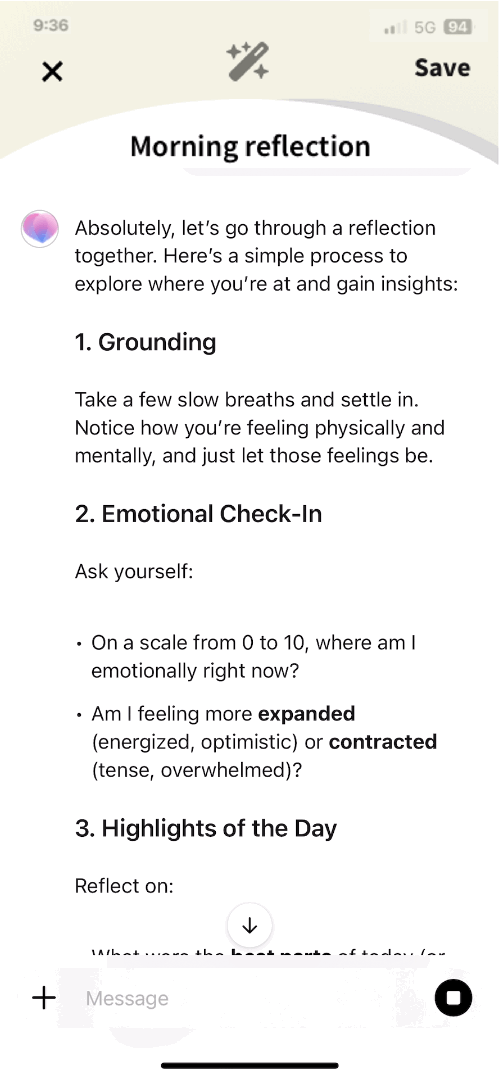
Better care, faster results.
Frequent and meaningful touch-points are proven to improve outcomes in less time. Apps and data can be helpful but we all need the human touch from time-to-time. When you do our goal is to cut in-session time by 50%, reducing treatment costs while keeping you on track and making measurable progress between sessions.
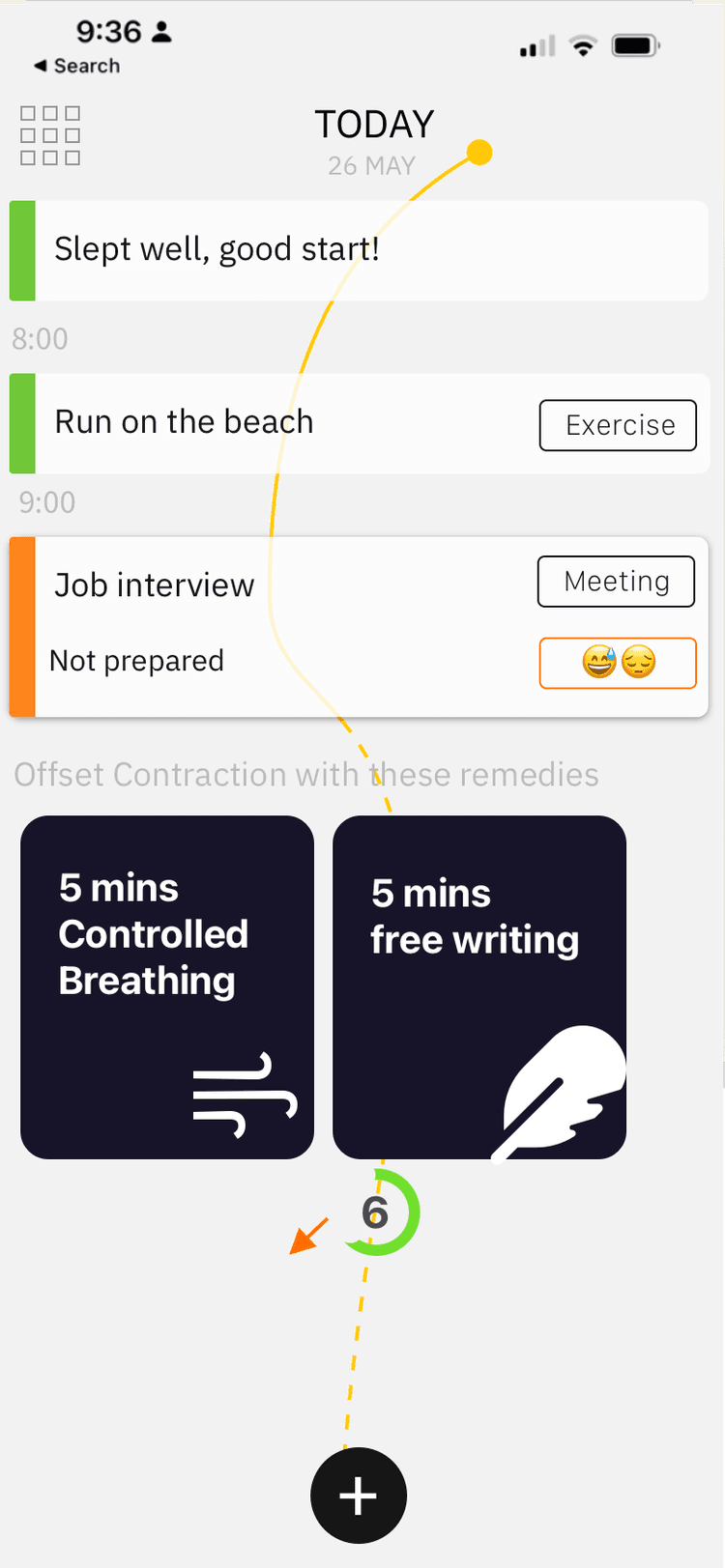
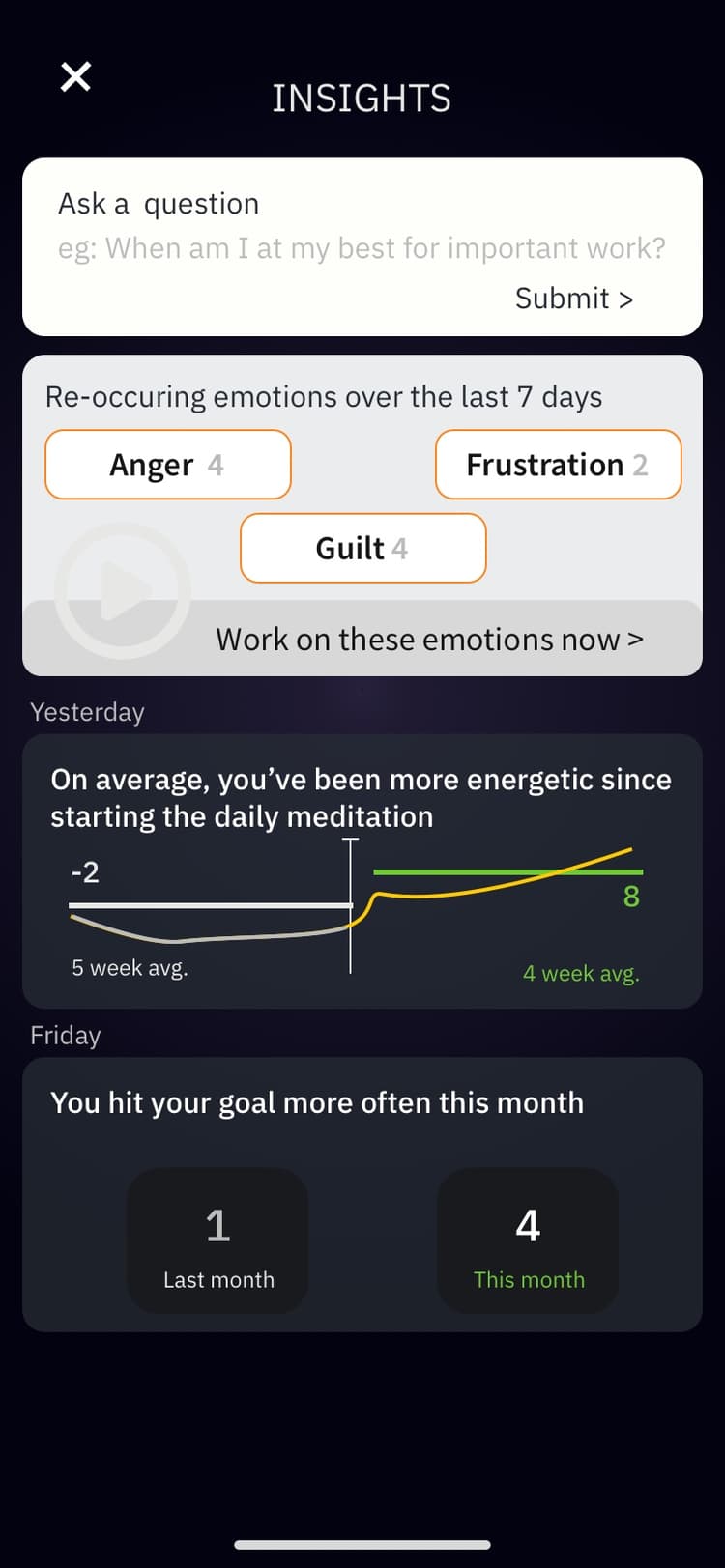
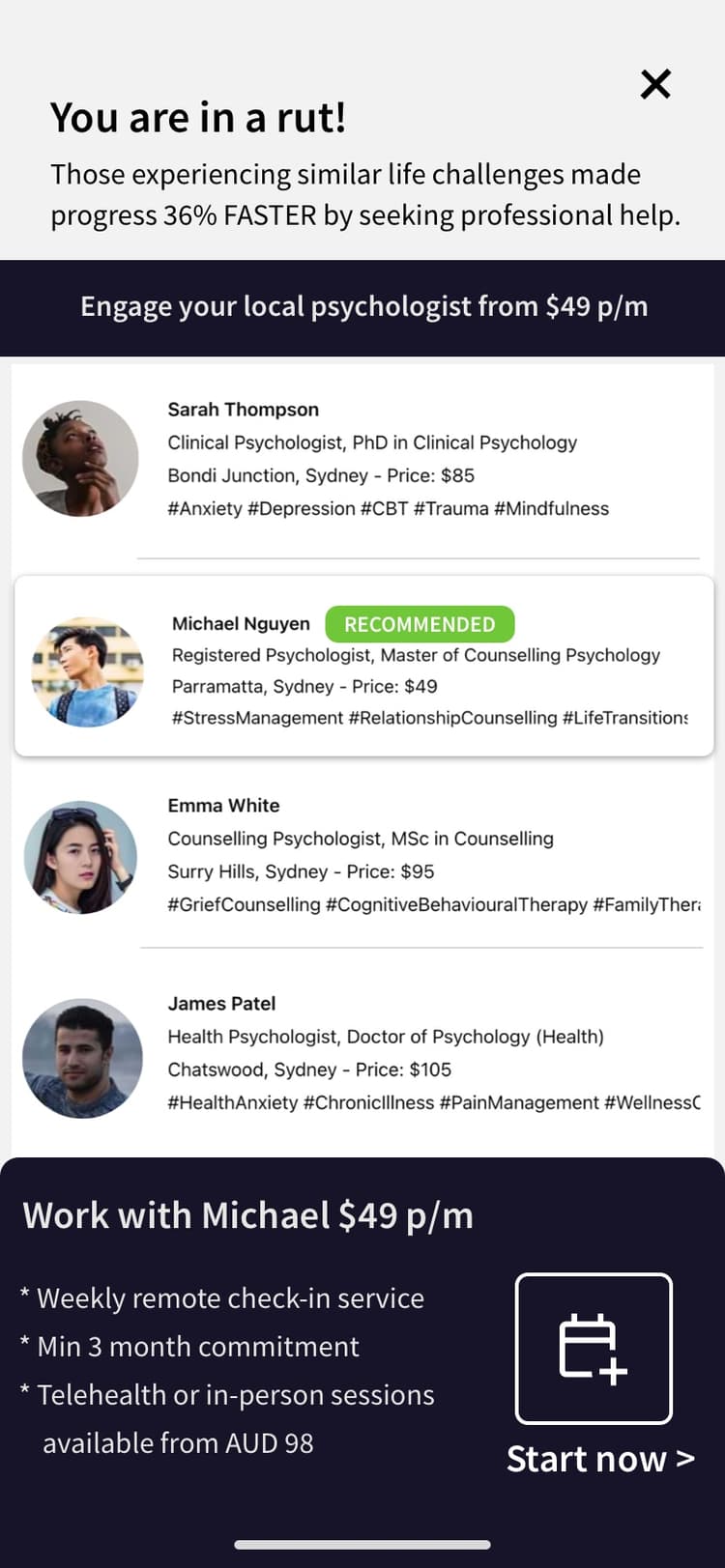
Optimise your mental fitness with professional-grade AI care—every day.
Stay aligned with your goals every week.
Regular check-ins help track what's working, ensuring evidence-based progress and better outcomes—whether you're in therapy or training independently.
- Track Compliance EasilyMonitor your adherence to treatment plans.
- See Weekly ImprovementsSmall steps build meaningful progress over time.
- Stay on CourseReceive reminders and nudges to stay focused.
Patterns you can't see. AI can.
AI interprets your data to surface clinically relevant patterns, giving you and your care team deeper insights for more targeted progress.
- Actionable Patterns IdentifiedSpot triggers and track progress over time.
- Real-Time FeedbackGet meaningful insights without the wait.
- Personalized SupportTailored guidance to fit your journey.
Integrate your data for a complete picture.
Sync sleep, exercise, and biometric data to give your care team a complete clinical picture of your mental and physical performance.
- Unified Data DashboardSee all your health data in one place.
- Identify Trends EarlySpot patterns in sleep, stress, and fitness
- Stay in SyncKeep your care team updated effortlessly.
Connect with professionals when you need support.
Access to clinical professionals when you need it—whether for ongoing therapy, one-off consultations, or finding the right fit for your journey.
- Book InstantlyGet care with just a few taps
- Find the Right FitMatch with therapists tailored to your needs.
- Access Anytime, AnywhereSupport when and where you need it.
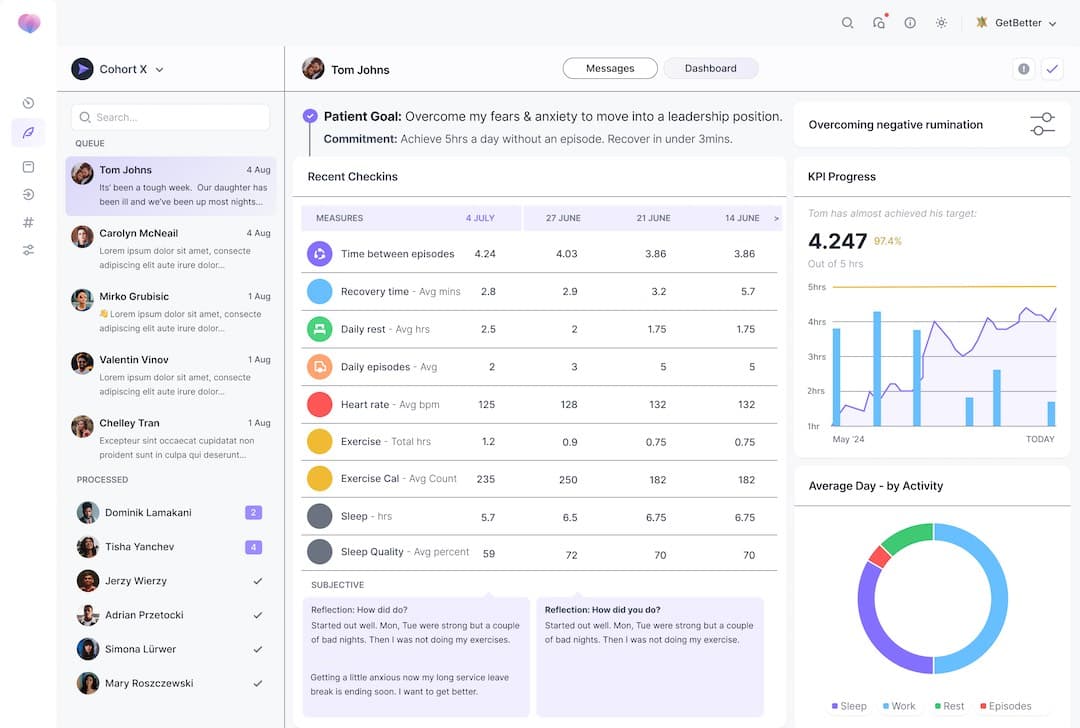
Our mission starts with you.
Around the world, mental health care systems are overwhelmed. With staggering shortages—such as 23,000 clinical psychologists in India for 30-35 million needed, and psychologists in Indonesia each serving 90,000 people—it's clear that the current model can't meet the demand.











At Ascenda, we believe that scaling care through technology can bridge this gap. Our evidence-based approach is overseen and backed by a team of leading psychologists, ensuring you receive effective, clinically sound support. Our mission is to provide continuous access to personalised care, so no one is left behind on their wellbeing journey.

" Losing my mom was hard. She just needed someone to talk to— that would have saved her. Ascenda could ultimately help bridge those moments between sessions and intervene. This app has to exist! "

“ AI offers tremendous potential to expand access to care, but it can’t replace professional judgment. Ascenda’s approach is a safeguard, helping AI complement rather than replace human insight. “

“ I have patients that consult with Dr Google and AI help. As a psychologist, I worry about privacy and the ethical issues. My Persona in Ascenda includes my supervision and approach to ensure my standards. “

" I can only see so many clients in a day. The idea of creating my own AI persona with Ascenda is exciting. I can extend my reach, offer more support and still maintain the personal touch that’s so critical. "
